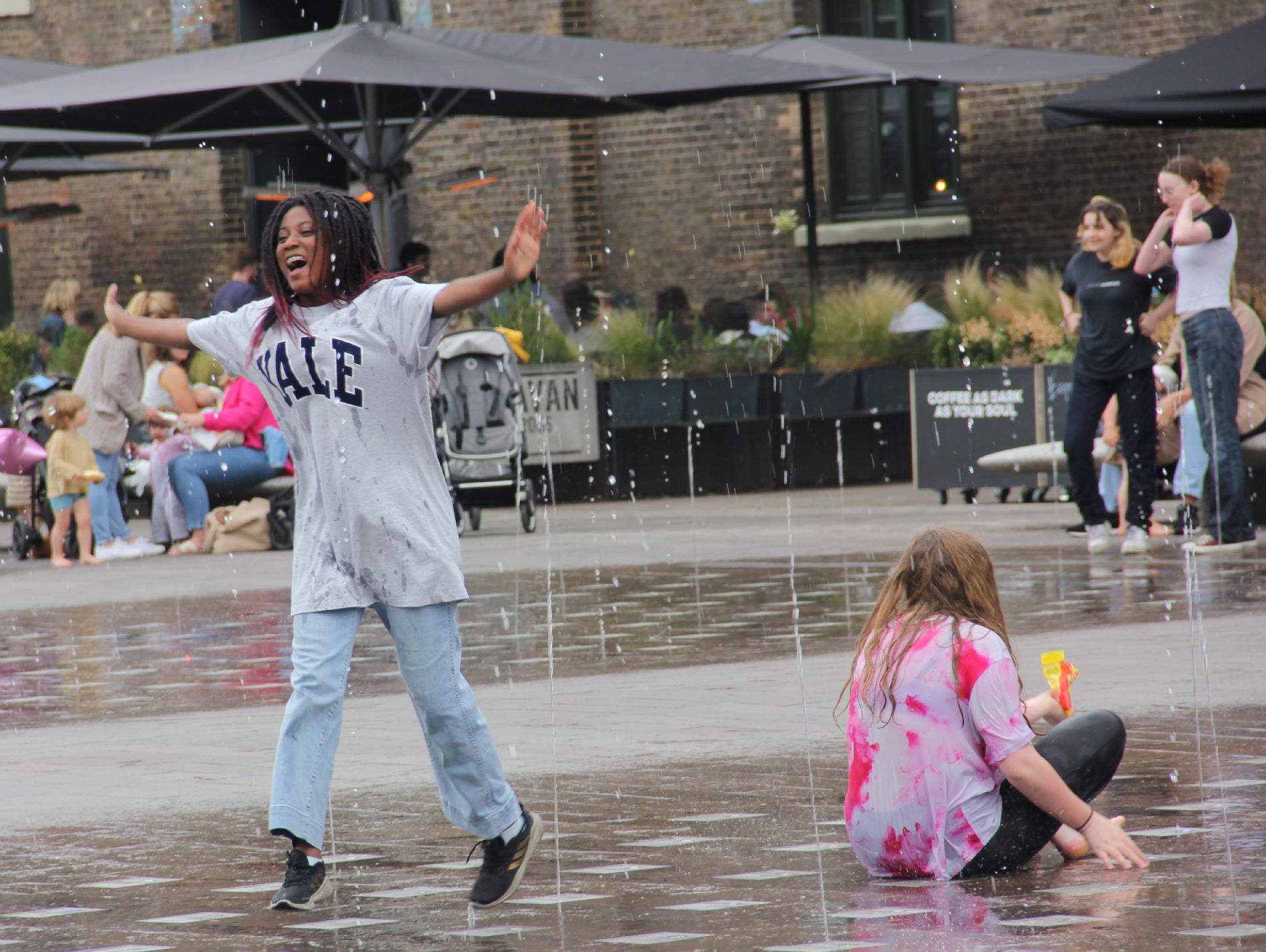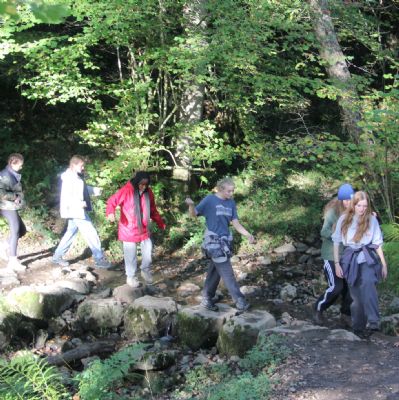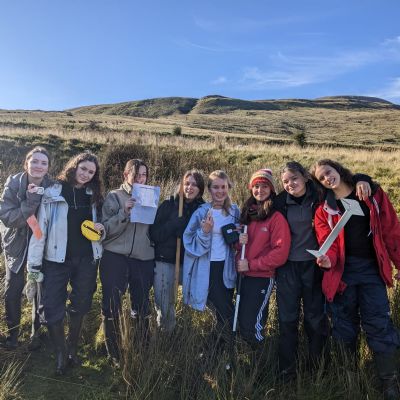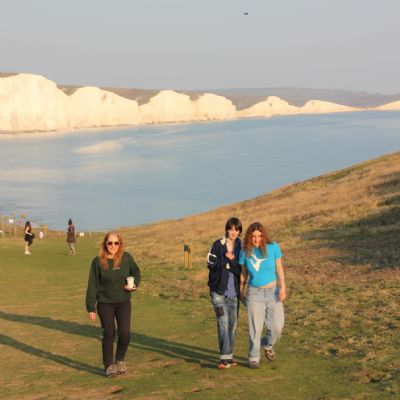Geography

What we hope to achieve
We believe the geography department at Camden School For Girls should be a place where students...
- feel that their lessons are vivid, real, relevant and current, that they readily see the connections between what they are studying in class and the important factors changing their world; the first-hand experience of fieldtrips is central to making these connections
- really enjoy themselves in lessons, which they actively look forward to, and in which they feel engaged; a department and a subject which every child remembers with affection
- feel that it is good to ask questions, and that the department will help them learn independently
- appreciate the diversity and breadth of geography and are given opportunities to develop their own interests beyond the National Curriculum and exam board syllabuses
- feel stretched and succeed at the highest level
“The study of geography is about more than just memorising places on a map. It’s about understanding the complexity of our world, appreciating the diversity of cultures that exist across continents. And in the end, it’s about using all that knowledge to help bridge divides and bring people together.” Barack Obama
Curriculum Information
Year 7
Students follow four broad modules. The first module is about Geography itself, what it means and the key three concepts that underlie everything we teach:
- Physical Geography
- Human Geography
- Environmental Geography
In the autumn term we study economic geography, considering the differences between primary, secondary and tertiary jobs and how these affect our landscape. The topic is brought to light in our day trip to Docklands.
In the spring term students will conduct a comparative study of Africa and India, looking at both physical and human aspects.
The entire summer term is devoted to climate change. What is the nature of the evidence we have for it, what are the causes, what are the impacts and what can we do about it. Case studies from Asia and Africa are considered.
Year 8
We look at the Earth as a series of dynamic systems. During the year we will study four main systems:
Population: By the end of the module students should be able to understand the following opinions:
- That to conserve the world’s resources, population growth must be arrested.
- That the world’s resources are not just threatened by population growth in southern countries, but also by high levels of consumption in the northern countries.
- That education and a higher standard of living play an important part in reducing population growth.
- That government policies can often cause large problems.
Our Weather System: We look at the atmosphere and how it influences the weather that we have to live through.
The Earth’s Ecosystem: The emphasis is placed on environmental destruction and conservation schemes. We will use a wide variety of data to enable the pupils to gain maximum geographical understanding.
The River System: Rivers are an important part of the Hydrological cycle – a system in itself. We study the physical features and have a day’s fieldwork measuring the River Bulbourne in Hertfordshire.
Year 9
Coastlines: Students study the coastlines around Britain, why and how they are changing so rapidly and what impact people have on them.
Earthquakes and Volcanoes: Students study the location and relationship between earthquakes and volcanoes, where they occur and how they happen and the impact they have on the communities that live near them.
Inequalities: In the summer term students begin the material which forms part of the GCSE course. They will consider the nature of inequalities in geography and how by many measures inequalities are on the rise.
In the different modules attention is drawn to mapwork using both atlases and OS maps.
GCSE
Central to the GCSE course is a residential fieldtrip to Wales. Here we collect data to be used in Unit 3 (see below) as well as trying out challenges and opportunities in new environments in a team of friends.
Paper 1: Physical Geography (35% - 1.5 hours long)(largely taught in Year 10)
- The challenge of natural hazards
- Physical landscapes in the UK
- The living world
- Geographical skills
Paper 2: Human Geography (35% - 1.5 hours long)(largely taught in Year 10)
- Urban issues and challenges
- The changing economic world
- The challenge of resource management
- Geographical skills
Paper 3: Geographical applications (30% - 1 hour long)(largely taught in Year 11)
- Issue evaluation
- Fieldwork
- Geographical skills
The GCSE Geography site below can only be accessed by students and staff of Camden School for Girls.
|
|
|
|
Trips
We believe that fieldtrips in geography are a vital part of learning. Each year you should go on at least one geography fieldtrip.
- Year 7 - London Docklands - influence of economic geography on landscape
- Year 8 - River Bulbourne - investigating river dynamics, and usually getting very wet
- Year 9 - Kings Cross - investigating urban regeneration
- Year 11 - North Wales week-long residential trip
- Year 12 - Sussex



Masterclasses
We are keen to encourage students to appreciate the diversity and breadth of geography and to have opportunities to develop their own interests beyond the National Curriculum and exam board syllabuses. For this reason we try to arrange a number of after school geography masterclasses. A selection of recent masterclasses are shown below. We encourage any students to come, but the events are particularly suitable for students in Years 10-13. Parents and carers are also welcome to attend.
- Danny Dorling, Professor of Geography at Oxford
- Estelle Morris, former Sec State for Education
- Hu Zhangliang, Counsellor, Political Section Chinese Embassy, London
- Simon Garfield, author of “On The Map”
- Rachel Harrison, SE Asia dept, SOAS
- Malcolm Vernon, Director Social Mobile Ventures Ltd
- Sara Mojtehedzadeh, BBC Africa
- Laura Hammond, Head of Development Studies, SOAS
- David Prout, Director General of High Speed Two (HS2)
- Phoebe Griffith, Director IPPR think tank
- Keir Starmer, MP for Holborn and St Pancras

